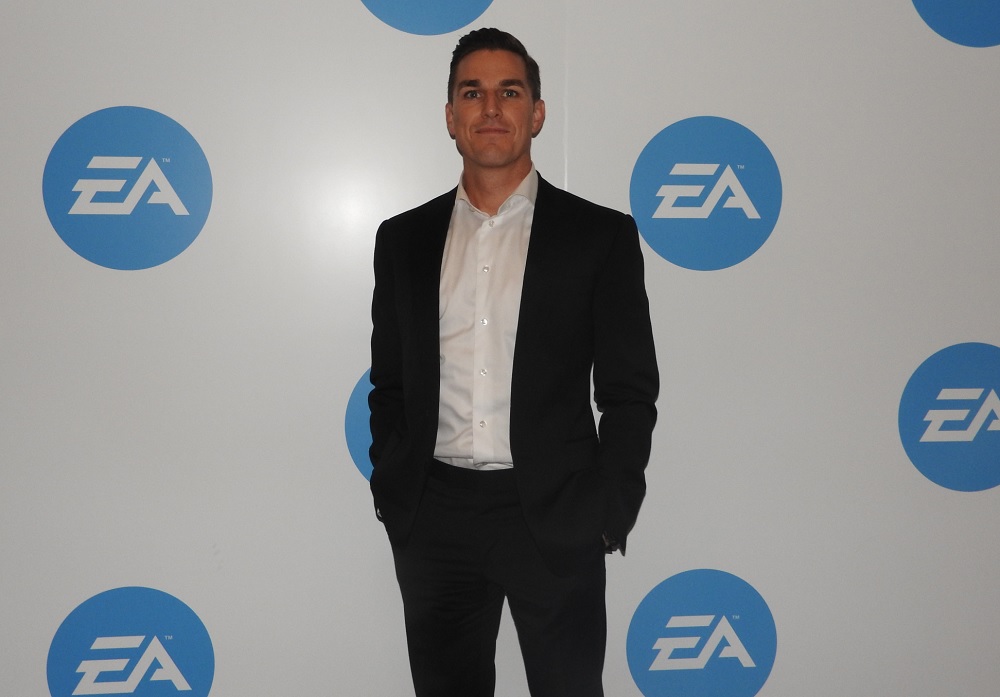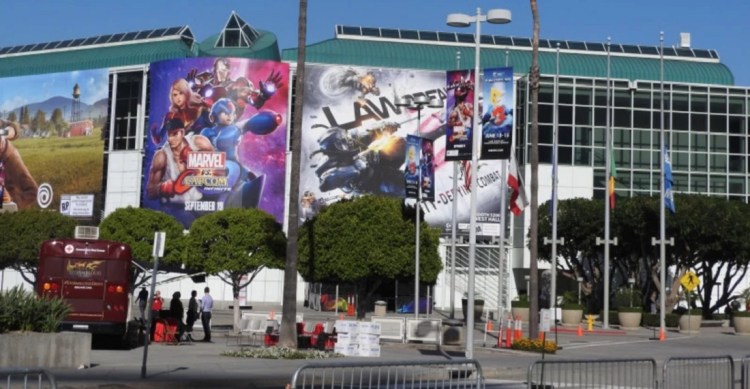Audience: You say that in-game items don’t have any value because the terms of service say they don’t. But isn’t the nature of currency generally that it only has value because people believe in this?
Pachter: Because of the full faith and credit of the U.S. government. I’m far from an expert at gambling law. I’m good at gambling, but I’m far from an expert at the law. I should say I’m good at losing at gambling, but I gamble. I think most statutes say that you have to have the ability to reduce the item to cash. You have to be able to sell it to somebody. If you can’t ever transfer it, then it has intrinsic value to you, because you want it, but if you can’t sell it, it doesn’t have value.
I know the Ninth Circuit in Washington said coins that you win have value because it extends your gameplay. I think that’s a tortured result. But Washington state law kind of read that way, so maybe? I think if you win a skin in Fortnite and you can’t sell it to anybody, it has no value.

Above: Andrew Wilson, CEO of Electronic Arts.
GamesBeat: EA’s CEO also said in his earnings call that they cooperate with the regulators who will go and shut down the illegal trading that is happening somewhere. They actively help defeat illegal trade.
June 5th: The AI Audit in NYC
Join us next week in NYC to engage with top executive leaders, delving into strategies for auditing AI models to ensure fairness, optimal performance, and ethical compliance across diverse organizations. Secure your attendance for this exclusive invite-only event.
Pachter: The trading all started in World of Warcraft with gold farmers. The gold farmers would get cool things and then arrange to meet you in the game. They’d drop it at your fee and you’d pick it up, but you had to pay them before they dropped it. Of course, Blizzard took steps to ban those accounts. They eliminated every single one that they got complaints about. It happens. But again, it doesn’t have value if you can’t sell it. It may have value to you, but if no one can buy it from you, no one can pay you for it, I don’t think it has value.
That’s my tax lawyer speaking. If you find treasure that can’t be sold, who cares what you think it’s worth? If you find a photo of your great-grandma from 1890, huge value to you, but no value to anybody else.
GamesBeat: The interesting thing in the past six months or so is that everybody has become aware that loot boxes can become a PR problem. If you look at the Harry Potter game that just came out on mobile, you go into your first big fight with something, and then at some point it stops the gameplay and says, “Do you want to buy some gems?” If you don’t want to buy some gems right now, you have to wait eight hours before you can finish the battle. It’s pretty egregious. It’s not illegal, but it’s creating a PR problem for that game.
Audience: To be fair, it’s more like eight minutes, not eight hours.
Audience: What you’re saying about the PR issue, it’s also a market opportunity. I’m reminded a little bit of the Blockbuster business model, charging people late fees, and people hated it, so they went to court. If you fight something in a court of law, you can still lose in the court of public opinion. It creates an opportunity for a Netflix or some other company to come in and say, “We’re not going to do this the way they’re doing it.” I feel like there has to be a sea change in the way developers respond and market their games. Monetization structures are going to be more up-front.
Pachter: I really do think you’re going to see a lot of emulation of Fortnite. Aside from the $20 vanishing skins, Fortnite has a Game Pass for $10. It’s a 10-week pass. You have 100 different tasks to complete, and some of them are super easy. You get a coin for each one. If you just do that, you get $10 to buy the next Game Pass, so it’s worth doing. You get three skins, three gliders, three weapons, and three backpacks. Then they’ll mix up the stuff you win, so people will get random, really hard-to-get things.
I’m interested to see if legislators say that’s a game of chance, because you get your $10 back. You can play Game Pass forever by spending $10 once. It’s super smart. People are going to see that somebody has that hard-to-get skin, and more people will sign up for the Game Pass. Epic told me 12 weeks ago that the one that started 12 weeks ago, they sold 5 million Game Passes the first day. $50 million in a day? That’s a good business model. I think a lot of publishers are going to copy that and move to cosmetics so nobody complains about pay-to-win.
Audience: You mentioned disclosure earlier. Assuming it’s not gambling, and in the U.S. it probably is not, there’s still two issues, which are the disclosure issue you touched on and the alleged addiction issue. On the disclosure, it seems like the problem for a lot of the companies who are monetizing loot boxes very well is there are no fixed odds. How do you disclose that? Do you have to change to using a true RNG? And on the second issue, addiction, it’s interesting that the Netherlands said there’s a perception of addiction, but no evidence it’s actually happening. Any thoughts from a business perspective on how to deal with those two issues?
Pachter: Addiction is real and we know it. It’s intuitively obvious that all of us—I don’t think it’s a kid thing. All of us get addicted. Just look at Netflix and binge-watching. You stay up an extra hour because you want to watch one more episode. I don’t know that you ever overcome that. I think it’s a legitimate thing to regulate. But I think it’s a parental obligation to control what your kids do.
As far as disclosure, it’s really easy to come up with odds. They should just do that. They should just say, “One of every 250 loot boxes has this weapon or character,” and let people decide if it’s worth it. It’s not how they’re doing it now, but they all could. They’re doing it in China. Overwatch is doing it. Everybody can do it. I don’t think that’s onerous. I just wonder what happens to consumer behavior. It’s like the lottery. Do people play the lottery less when they know the odds?
Audience: What do you think is going to be the most important thing that comes out of E3?
Pachter: Nothing from the hardware guys. Other than maybe a bundle with PSVR and PlayStation 4. Plenty of games. But I don’t think—Wal-Mart Canada has already blown that, so we’ve already seen most of them. Activision probably will announce the next round of Overwatch League owners. The most lasting thing is going to be the Fortnite celebrity pro tournament, I think. That’s the night of my party. They’re doing it from 10 to 2 in the morning. I think we’ll be amazed at how many celebrities show up to play in that thing. It’s crazy. Roseanne plays Fortnite. Reese Witherspoon plays Fortnite.
GamesBeat: I’m curious if somebody comes up with a Fallout Shelter marketing bonanza again. Something that launches there and is immediately available.
Pachter: That game is Warcraft Mobile. But Blizzard will never announce anything at E3. It’ll be at Blizzcon. That’s the Blizzard game that will knock everybody out. But there’s nothing big. It’s just a good event to draw a lot of media attention to the industry.



